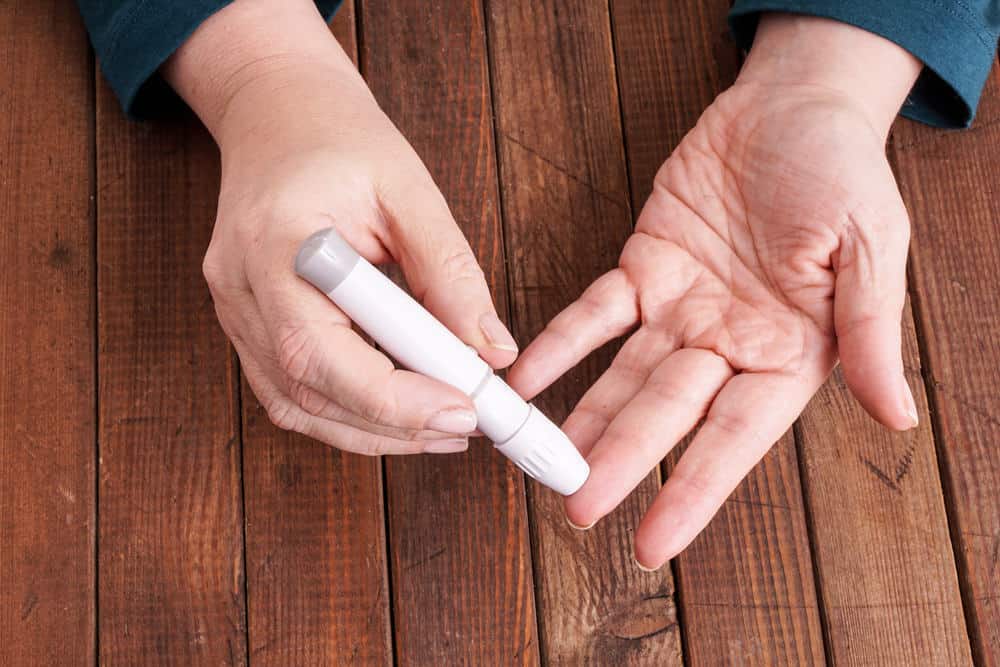Contents:
- Medical Video: Do Not Ignore These 10 Early Symptoms of Diabetes
- What causes hyperglycemia in diabetic people?
- What are the signs and symptoms of hyperglycemia?
- What is the effect if hyperglycemia is not treated?
- Other complications that may occur due to hyperglycemia
- 1. Diabetic ketoacidosis
- 2. Hyperglycemic hyperosmolar syndrome
- How to prevent complications of this diabetes?
Medical Video: Do Not Ignore These 10 Early Symptoms of Diabetes
Diabetics have blood sugar levels that are above the normal limit. Well if left unchecked, high blood sugar can cause hyperglycemia. Hyperglycemia is a complication of diabetes which includes severe. This condition occurs when glucose (sugar) levels in the blood soar too high. Hyperglycemia can be fatal if handled late.
What causes hyperglycemia in diabetic people?
People with diabetes are very susceptible to hyperglycemia because their bodies do not have enough insulin or cannot use insulin properly (insulin resistance). In fact, insulin is needed to control the increase in glucose (blood sugar).
An increase in uncontrolled blood sugar can reach a very dangerous level if it is not dealt with quickly. This stage is what is meant by hyperglycemia.
So, what causes hyperglycemia in diabetic people?
There are many things that can increase your blood glucose levels. Some of them are like:
- Not getting enough insulin intake
- Do not take diabetes medication regularly
- Not injecting insulin properly or using insulin expires
- Not eating healthy foods
- Having a certain disease or infection
- Using certain drugs, such as steroids
- Having a wound or undergoing surgery
- Experience emotional stress, such as family conflict or work challenges
Disease or stress can trigger hyperglycemia because the hormones produced to fight disease or stress can also cause blood sugar to increase.
What are the signs and symptoms of hyperglycemia?
Complications of diabetes in this one often do not show significant symptoms until blood glucose surges more than 200 milligrams per deciliter (mg / dL), or 11 millimoles per liter (mmol / L).
However, some signs or symptoms that might occur if you experience hyperglycemia are:
- Frequent urination.
- Frequent thirst.
- Often feel excessive hunger.
- Blurred vision.
- Limp, lethargic, and not powerful.
- Headache.
What is the effect if hyperglycemia is not treated?
Untreated hyperglycemia can cause complications of chronic diabetes including:
- Cardiovascular disease.
- Nerve damage (neuropathy)
- Kidney damage (diabetic nephropathy) or kidney failure.
- Damage to the retinal blood vessels (diabetic retinopathy), which has the potential to cause blindness.
- Blurry vision (cataract).
- Foot problems caused by damaged nerves or poor blood flow. This condition can cause serious infections and, in some severe cases, requires amputation.
- Bone problems and joint problems.
- Skin problems, including bacterial infections, fungal infections and wounds that are difficult to heal.
- Dental infections and gum infections.
Not only that, glucose levels that are too high in your bloodstream can cause other more severe conditions.
Other complications that may occur due to hyperglycemia
1. Diabetic ketoacidosis
Diabetic ketoacidosis occurs when the level of insulin in your body is too low so it cannot burn excess sugar as energy. As a result, your blood sugar levels increase and your body begins to break down fat for energy.
This process produces a toxic acid known as ketone. Excess ketones accumulate in the blood and eventually "spill" into the urine. If left untreated, diabetic ketoacidosis can cause diabetic and life-threatening coma, even death.
Symptoms of diabetes ketoacidosis include:
- Bad breath
- Nausea and vomiting
- Hard to breathe
- Dry mouth
- Lemas not powered
- Daze
- Stomach ache
You should also immediately see a doctor if:
- Having diarrhea or continuous vomiting.
- Have a fever that lasts more than 24 hours.
- Blood glucose levels are more than 240 mg / dl (13 mmol / l) even though you have taken diabetes medication.
- It is difficult to keep your blood glucose in the desired range.
Seek immediate emergency help if you feel sick and unable to regulate the food intake or liquid you eat.
2. Hyperglycemic hyperosmolar syndrome
Hyperglycemic hyperosmolar syndrome is a condition that occurs when the body produces insulin but does not work properly. As a result, the body cannot burn glucose or fat to become energy. This causes blood glucose levels to rise very high - higher than 600 mg / dL (33 mmol / L).
Your body then transmits excess glucose into the urine, and causes a tendency to go back and forth to urinate.
If left untreated, diabetes hyperosmolar hyperglycemic syndrome can cause life-threatening dehydration to coma. Medical treatment that is as fast as possible is very important to do.
How to prevent complications of this diabetes?
To prevent various complications of diabetes, including hyperglycemia, the most effective and effective way is to routinely check blood sugar every day. This is done so that diabetics can find out immediately if their blood sugar increases at any time.
In addition, be consistent to apply a healthier, more diligent, and orderly diet to take the medication your doctor prescribes to keep your blood sugar level under control.
If you have done the various methods above but your blood sugar levels still remain out of control for more than 3 days, and you don't know why this happens, immediately take a urine test. A urine test is performed for the presence of ketones and then contact your doctor or nurse immediately.
If you have difficulty keeping your blood sugar within the desired range, don't hesitate to consult a doctor immediately. Doctors can help you make a better diabetes care plan.












